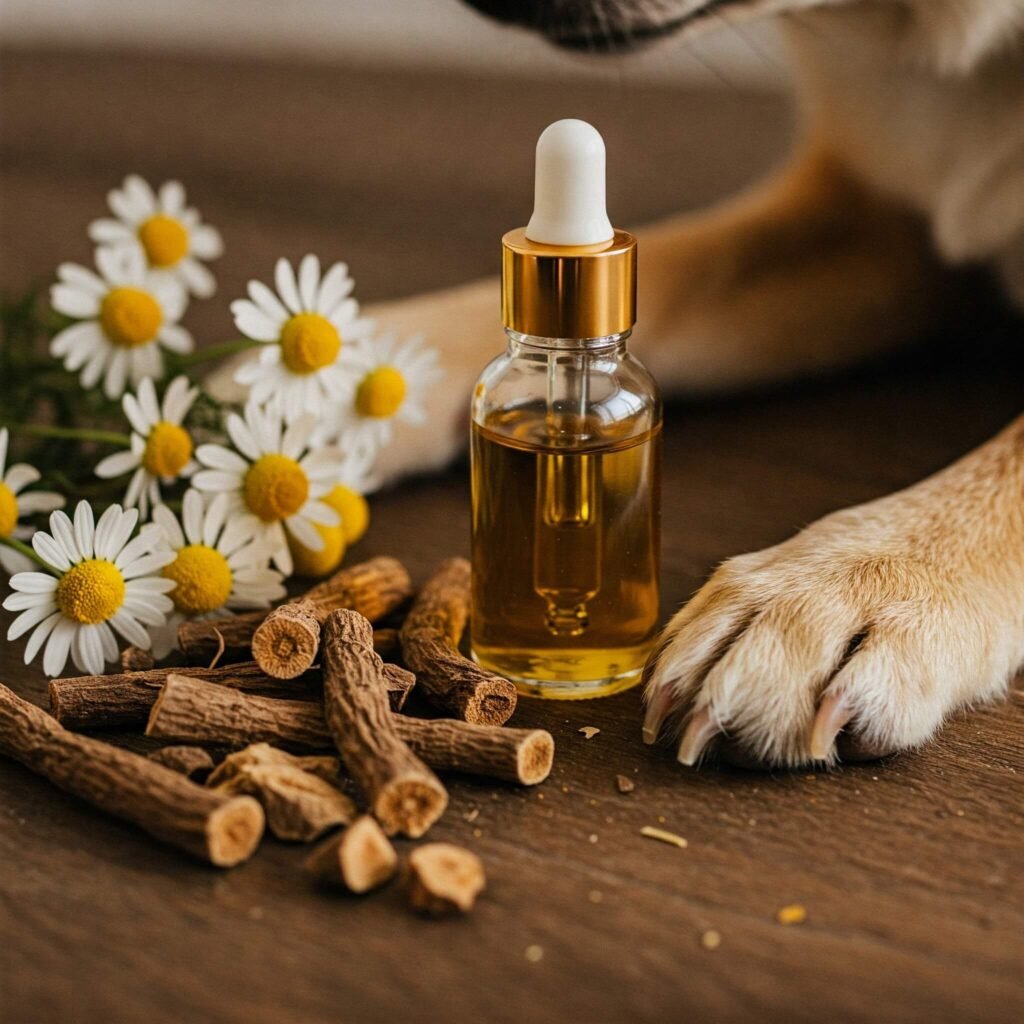As loving pet parents, witnessing our furry companions struggle with anxiety can be heartbreaking. Whether it’s triggered by loud noises, separation, travel, or unknown fears, dog anxiety manifests in various ways, from excessive barking and pacing to destructive behavior and trembling. Thankfully, you don’t always need harsh medications. This guide explores effective and gentle natural remedies for calming an anxious dog, offering practical solutions to help your beloved pet find peace and tranquility.
Understanding Dog Anxiety and the Need for Natural Calm
Dog anxiety isn’t just “bad behavior”; it’s a genuine emotional response that can significantly impact your dog’s quality of life. Recognizing the signs – restlessness, panting, hiding, aggression, or changes in appetite – is the first step. While professional veterinary advice is crucial for severe cases, many mild to moderate anxieties can be effectively managed with natural remedies for calming an anxious dog. These approaches often work by gently influencing the nervous system, promoting relaxation without the potential side effects of some pharmaceuticals.
Top Natural Remedies for Calming Your Anxious Dog
Here are some of the most effective natural remedies for calming an anxious dog that you can incorporate into your pet’s routine:
Herbal Helpers for Dog Anxiety Relief
Certain herbs have long been recognized for their calming properties in animals. Always consult with your veterinarian before introducing any new supplements to ensure they are appropriate and safe for your dog’s specific needs and any existing health conditions.
- Chamomile: Known for its mild sedative and relaxing effects, chamomile can be given as a tea (cooled) or in some dog-specific supplements.
- Valerian Root: This herb has a strong, earthy scent and is often used to reduce anxiety and promote sleep. It’s available in tinctures, capsules, and chews formulated for dogs.
- Passionflower: Passionflower can help to reduce nervousness and restlessness in dogs. Look for dog-safe formulations.
- CBD Oil (Cannabidiol): Derived from hemp, CBD oil has gained popularity for its potential to reduce anxiety and pain in dogs. Ensure you choose a high-quality, THC-free product specifically formulated for pets and discuss the appropriate dosage with your vet. ([Outbound Reference Link to a reputable source about CBD for pets, e.g., American Veterinary Medical Association or a trusted veterinary journal])

The Power of Aromatherapy for a Calm Canine
Just like humans, dogs can respond positively to certain scents that promote relaxation. However, it’s crucial to use essential oils safely and appropriately for dogs, as some can be toxic. Always use diluted oils and never apply them directly to your dog’s skin or allow them to ingest them. Diffusion is generally the safest method.
- Lavender: Known for its calming and stress-reducing properties, lavender essential oil can be diffused in a pet-safe diffuser in a well-ventilated area.
- Chamomile (Roman): Similar to the herb, Roman chamomile essential oil has a soothing and calming aroma.
- Cedarwood: This earthy scent can have a grounding and calming effect on anxious dogs.
Important Note: Always ensure your dog can leave the area if they find the scent overwhelming. Never force them to stay near a diffuser. ([Outbound Reference Link to a reputable source on essential oil safety for pets, e.g., ASPCA or Pet Poison Helpline])
Creating a Calm Environment for Your Anxious Dog
Sometimes, the simplest natural remedies for calming an anxious dog involve modifying their environment and routine:
- Safe Space: Provide your dog with a designated “safe space” – a comfortable den, crate, or quiet corner where they can retreat when feeling overwhelmed. Never use this space for punishment.
- Consistent Routine: Dogs thrive on predictability. Maintaining a consistent daily schedule for feeding, walks, and playtime can reduce anxiety related to uncertainty.
- Plenty of Exercise: Regular physical activity helps to burn off excess energy and can alleviate anxiety. Ensure your dog gets adequate exercise appropriate for their breed and age.
- Mental Stimulation: Boredom can contribute to anxiety. Provide puzzle toys, training sessions, and interactive games to keep your dog mentally engaged.
- Calming Music and Sounds: Some dogs find comfort in soft music specifically designed for pets or white noise, which can help to mask startling sounds. ([Outbound Reference Link to a resource on calming music for dogs, e.g., Through a Dog’s Ear])

Behavioral Techniques for a Less Anxious Dog
Alongside environmental adjustments, certain behavioral techniques can be powerful natural remedies for calming an anxious dog:
- Positive Reinforcement Training: Using rewards-based training can build your dog’s confidence and create positive associations with potentially stressful situations.
- Counter-Conditioning and Desensitization: These techniques involve gradually exposing your dog to their anxiety triggers in a controlled and positive way, changing their emotional response over time. This often requires patience and consistency.
- Massage and Gentle Touch: Physical touch, such as gentle petting and massage, can release endorphins and promote relaxation in dogs.
Key Takeaways for Calming Your Anxious Dog Naturally
Implementing natural remedies for calming an anxious dog requires patience, observation, and a holistic approach. Remember:
- Consult your veterinarian: Rule out any underlying medical conditions and discuss any new remedies you plan to introduce.
- Start slowly: Introduce one remedy at a time to observe its effect on your dog.
- Be consistent: Natural remedies often require consistent use to see noticeable results.
- Provide a loving and supportive environment: Your calm presence can be one of the most powerful natural remedies for calming an anxious dog.
By understanding the root causes of your dog’s anxiety and utilizing these natural strategies, you can significantly improve their well-being and help them live a happier, more peaceful life.








































